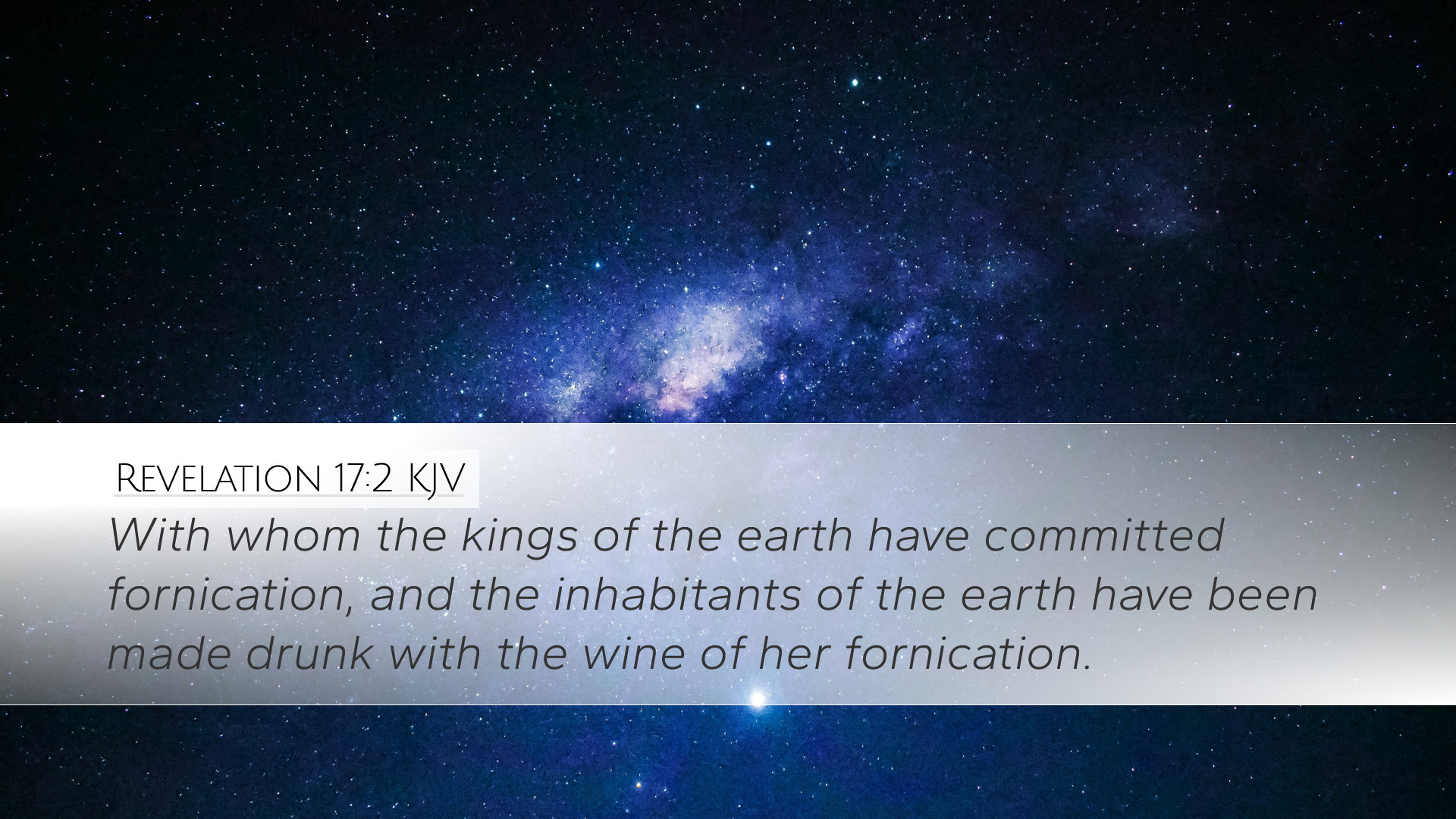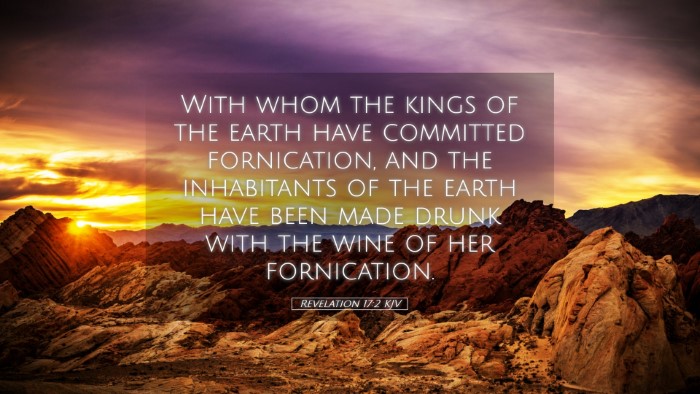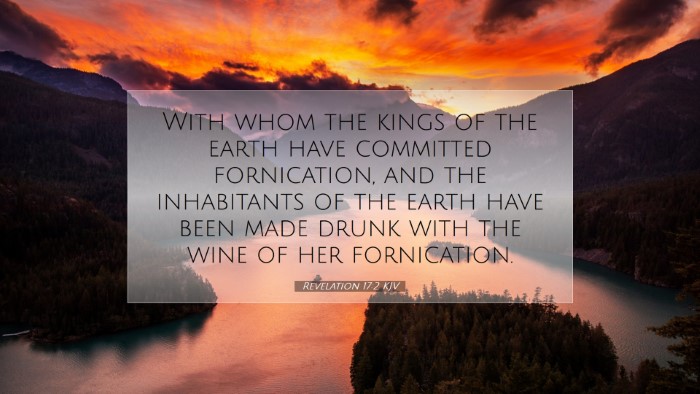Commentary on Revelation 17:2
Introduction
This passage in Revelation is a significant text that outlines the character of the great harlot and her relationship to the kings and inhabitants of the earth. It serves as a critical component of the New Testament’s eschatological prophecies, emphasizing themes of apostasy, idolatry, and divine judgment. This commentary amalgamates insights from notable public domain commentaries by Matthew Henry, Albert Barnes, and Adam Clarke to provide a comprehensive exploration of this intriguing verse.
Text of Revelation 17:2
“With whom the kings of the earth have committed fornication, and the inhabitants of the earth have been made drunk with the wine of her fornication.”
Historical and Cultural Context
Understanding the Setting
The imagery of the “great harlot” used in this verse reflects the historical context of idolatrous practices prevalent in the ancient world, where sexual immorality was often a metaphor for spiritual unfaithfulness. According to Matthew Henry, the term “fornication” symbolizes not only physical adultery but also spiritual infidelity through the worship of false gods. This concept was thoroughly understood within the cultural milieu of the early Christian community and the Greco-Roman society in which they existed.
Furthermore, Albert Barnes highlights that John's use of such vivid and provocative imagery seeks to portray the corrupt alliances formed between earthly powers and idolatrous practices. The harlot represents not just a specific city or society but symbolizes the broader apostasy that permeates through worldly systems in opposition to God.
Analysis of Key Themes
1. The Great Harlot
Symbolism of the Harlot
The great harlot symbolizes false religion and the enticements of the world that lead people away from the true worship of God. Adam Clarke asserts that this figure illustrates the allure of false doctrine that seduces kings and commoners alike. Such fornication refers to both a deep moral corruption and a spiritual betrayal, a theme pervasive throughout the Book of Revelation.
2. Kings of the Earth
Political Alliances
This verse highlights the collaboration between civil authority and corrupt religious practices. The “kings of the earth” represent secular powers that engage in moral and spiritual compromise for the sake of political gain. As noted by Barnes, this establishes a clear contrast to the divine authority and sovereignty of Christ, inviting reflection on the respective outcomes of such alliances.
3. The Inhabitants of the Earth
Spiritual Intoxication
The phrase “made drunk with the wine of her fornication” speaks of deep spiritual intoxication resulting from seduction by false teachings and practices. This metaphor emphasizes the loss of discernment and the overwhelming influence of sin. According to Henry, this ‘drunkenness’ further illustrates the destructive nature of the harlot's influence, which leads to ultimate judgment rather than renewal.
Theological Implications
This passage brings forth several profound theological implications concerning the nature of sin and the consequences of spiritual unfaithfulness. The cooperation of state and religion historically has significant ramifications, often resulting in oppression of the true faith and moral decay.
1. God’s Judgment
The Divine Response to Apostasy
The imagery suggests that this unholy union between the spiritual harlot and earthly powers will not go unnoticed or unpunished by God. Both Clarke and Barnes assert that the eventual outcome will be the judgment of the great harlot and all who partake in her sins, reinforcing the idea of divine justice and the ultimate triumph of God's kingdom.
2. Call to Holiness
The Believer’s Responsibility
For pastors and students of the Bible, this passage serves as a dire warning against spiritual compromise. Believers are called to remain vigilant and faithful, resisting the temptations of the world that beckon towards moral and doctrinal corrosion. Henry emphasizes the need for personal integrity and communal purity as a mark of true discipleship.
Conclusion
Revelation 17:2 presents a profound reflection on the nature of spiritual and moral compromise within the context of biblical prophecy and illuminates crucial aspects of divine judgment, the dynamics of power, and the responsibility of believers. By employing rich symbolism and urgent warnings, this text reminds us of the perennial dangers of idolatry and the steadfast call to holiness amidst a world steeped in corruption. The insights gathered from Henry, Barnes, and Clarke provide a layered understanding that speaks to the hearts of pastors, students, and Biblical scholars alike, urging them to engage deeply with the text and its implications for today’s church.


